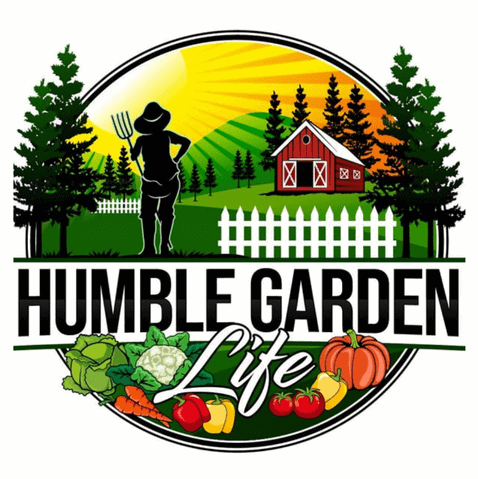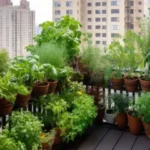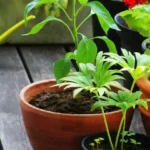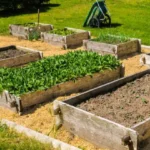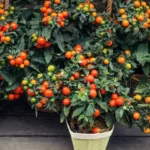Selecting the best soil mixture for growing tomatoes in containers is essential to ensure your plants flourish in your backyard garden. Opting for a soilless potting mix tailored for container gardening is a fundamental starting point, but there’s more to it than just that. The composition of your soil can significantly impact the growth and yield of your tomatoes.
The best soil mixture for growing tomatoes in containers is well-draining, nutrient-rich, and has good moisture retention. A typical soil mixture for tomatoes in containers is a combination of:
- Potting Soil: Use high-quality potting soil as the base of your mixture. Look for a mix specifically formulated for vegetables or tomatoes, as these will have the right balance of nutrients.
- Compost: Add compost to your soil mixture to provide additional nutrients and improve soil structure. Compost also helps retain moisture in the soil.
- Perlite or Vermiculite: Add perlite or vermiculite to improve drainage and aeration in the soil. This is especially important in containers, where soil can become compacted.
- Peat Moss or Coconut Coir: These ingredients help retain moisture in the soil, which is vital for tomatoes. They also help improve soil structure and aeration.
- Epsom Salt: Some gardeners add Epsom salt to the soil mixture to provide magnesium, which can help promote healthy tomato plants and improve fruit production.
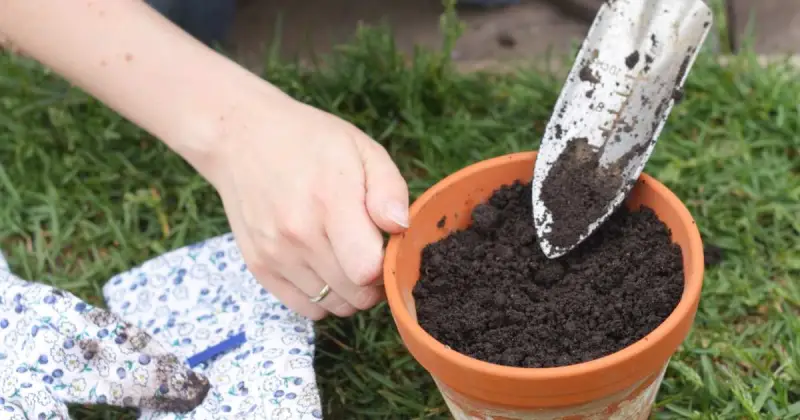
As you navigate the various components, ideas, and considerations for container gardening and the ideal soil mixture in this article, you’ll uncover critical insights that could make all the difference in your tomato-growing journey.
We’ll also cover the vital importance of soil pH, essential soil elements like peat moss and perlite, and appropriate moisture levels for tomato plants.
Humble Highlights
- Save time with these essential soil requirements for cultivating delicious container-grown tomatoes so you can provide the nutrients tomatoes need for healthy development, reducing the need for additional fertilization.
- Discover the best pH level for growing potted tomatoes and how to adjust your soil to be more alkaline or acidic to ensure your plants have optimal nutrient uptake while ensuring a consistent growing environment.
- Boost tomato growth and plant health by uncovering how to measure your soil’s moisture levels and help prevent soil-borne diseases so you can ensure your plants have a consistent water supply and are well-draining.
Soil Requirements For Container Tomatoes
For maximum growth and yield for your container tomatoes, choose a soilless potting mix tailored for container gardening that promotes proper aeration and drainage. When selecting potting soil for your tomato plants, ensure it contains organic materials such as compost to provide essential slow-release nutrients necessary for the healthy development of your tomato plants in containers.
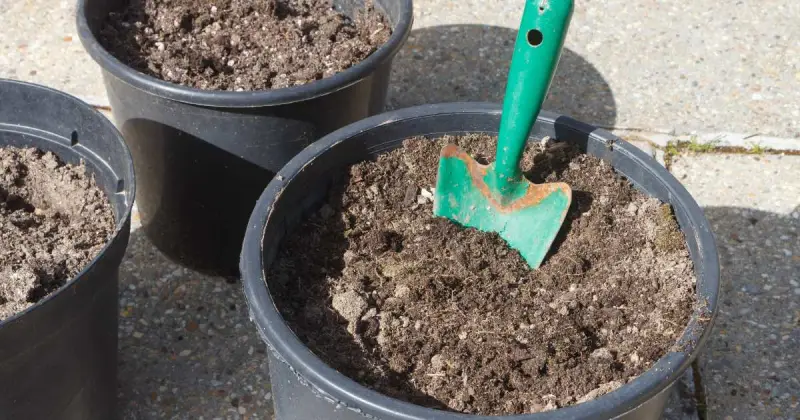
Additionally, consider incorporating perlite, vermiculite, or coco coir into the soil mix to enhance aeration and facilitate root growth. Adequate drainage holes in your containers are also important to prevent waterlogging, leading to root rot and other troublesome issues.
Using a soil mix rich in organic materials and optimizing drainage creates an ideal environment for your tomato plants to thrive in a container gardening setup. 1
Importance Of pH Level In Soil
Maintaining the correct pH level in your soil is vital for the best growth of your tomato plants. Tomatoes thrive in slightly acidic soil, so ensuring a pH level between 6.0 and 6.8 is critical. The acidity or alkalinity of your soil directly impacts the availability of nutrients essential for your tomatoes’ healthy development.
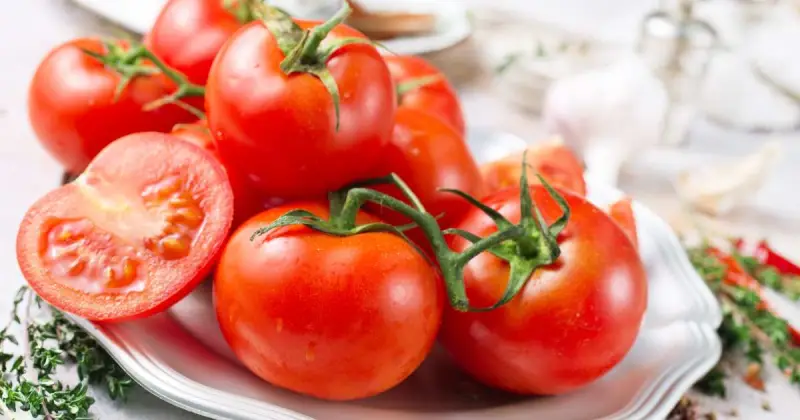
pH Balance In Soil
Maintain ideal nutrient availability for your tomato plants by carefully monitoring and adjusting the soil pH level. As mentioned above, tomatoes thrive in slightly acidic soil with a pH range of 6.0 to 6.8, ensuring excellent growth and nutrient uptake. 2
Imbalanced pH levels can result in nutrient deficiencies or toxicities, hindering your tomato plants’ development. Periodically test the soil pH and make necessary adjustments to create a perfect environment for your tomatoes.
pH level can significantly impact tomato growth and fruit production. Tomatoes prefer slightly acidic soil with a pH range of 6.0 to 6.8. When the soil pH is too low (acidic) or too high (alkaline), it can affect the availability of nutrients in the soil, leading to nutrient deficiencies or toxicities in the plants.
Regularly testing the pH of your soil and making adjustments as needed can help ensure that your tomatoes can access the nutrients they need for optimal growth and fruit production. Adding organic matter, such as compost, several times per year can also help buffer the pH of the soil and improve its overall health.
| Amendment | Action |
|---|---|
| Lime | Raises pH level |
| Elemental sulfur | Lowers pH level |
Soil Acidity Levels
Achieving the ideal soil acidity level is essential for optimizing nutrient availability and fostering robust growth in your tomato plants. Testing soil pH levels with a simple kit from gardening stores is important. If the pH is too high (alkaline), consider adding sulfur to lower it. Conversely, if the pH is too low (acidic), adding lime can help raise the pH.
Maintaining the correct soil acidity level is crucial for ensuring the health of your tomato plants and promoting fruitful production. Monitoring and adjusting soil pH levels accordingly can provide the ideal environment for your tomatoes to flourish.
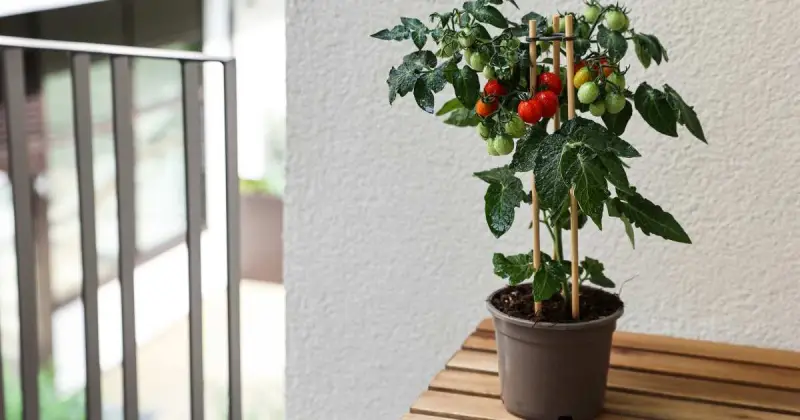
Alkaline Soil Effects
To optimize the growth of your container-grown tomato plants, understanding the effects of alkaline soil on nutrient availability is crucial.
- Alkaline soil, with a pH above 7, can lead to nutrient deficiencies like iron and manganese.
- High pH levels in alkaline soil can hinder the absorption of essential nutrients, impacting plant growth.
- Adjusting soil pH levels using amendments like sulfur or peat moss can help create an ideal growing environment for container-grown tomatoes.
Ensuring the pH level of your soil remains within the preferred range enables your tomato plants to access essential nutrients efficiently. By addressing alkaline soil issues promptly through suitable amendments, you can promote healthy growth and bountiful harvests from your container-grown tomatoes.
Essential Nutrients For Tomato Growth
For the ideal growth of container-grown tomatoes, it is important to ensure they receive essential nutrients like nitrogen, phosphorus, potassium, calcium, magnesium, sulfur, and micronutrients. Additionally, micronutrients such as iron, zinc, and boron are required for proper growth, flower formation, and fruit development in container tomatoes.
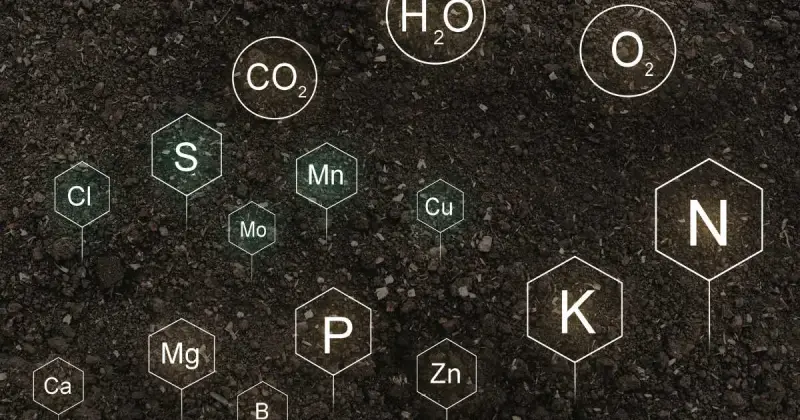
- Potassium is essential for overall plant health and fruit quality.
- Calcium plays a significant role in preventing blossom end rot, a common issue in container-grown tomatoes. 3
- Magnesium is necessary for chlorophyll production, photosynthesis, and enzyme activation, contributing to your tomato plants’ overall health and productivity.
- Sulfur is vital for various metabolic processes, including enzyme activation and protein synthesis, which are necessary for robust growth.
Benefits Of Peat Moss In Soil Mix
Peat moss in your soil mix offers advantages for growing tomatoes in containers. It helps to retain moisture, enhances soil aeration, and provides excellent nutrient retention. Incorporating peat moss gives your tomato plants the ideal environment to thrive and produce a bountiful harvest.
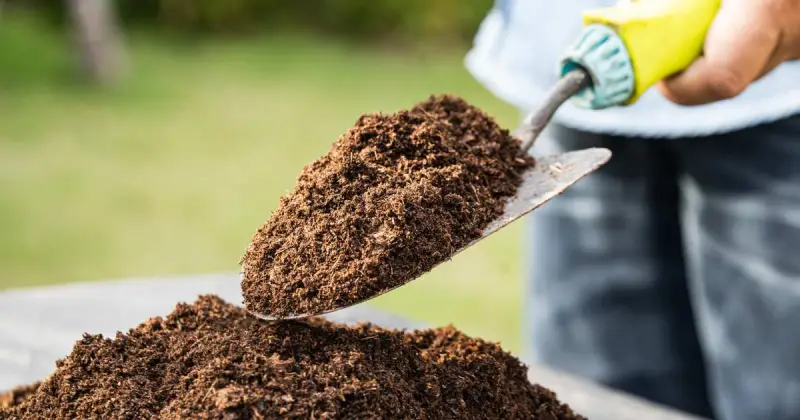
Peat Moss Retains Moisture
Incorporate peat moss into your container soil mix to maintain ideal moisture levels for your tomato plants. Peat moss offers various benefits for your container-grown tomatoes, including:
- Moisture Retention: Peat moss helps prevent the soil from drying out quickly, ensuring longer-lasting moisture for your tomato plants.
- Improved Soil Structure: It enhances soil structure, promoting better root development and nutrient absorption in container environments.
- Acidic Nature: Peat moss’s acidic nature is beneficial for acid-loving plants like tomatoes, creating a perfect growing environment in containers.
- Retains Essential Nutrients: Peat moss helps hold vital nutrients like nitrogen, phosphorus, and potassium, necessary for the healthy growth of tomatoes in containers.
- Maintains Ideal pH Levels: The acidic nature of peat moss benefits acid-loving plants such as tomatoes, ensuring the soil retains the perfect pH balance for robust growth. 4
Also, when combined with perlite and compost, peat moss contributes to a well-balanced soil mix, providing the conditions for thriving tomatoes in containers.
Enhances Soil Aeration
Consider enhancing soil by incorporating peat moss into your soil mix. Peat moss improves soil structure, reducing compaction and allowing roots to access oxygen more efficiently, facilitating ideal root growth and nutrient absorption for container-grown tomatoes.
This enhancement promotes essential root development, which is important for your tomato plants’ overall growth and productivity.
Additionally, the lightweight nature of peat moss makes it a practical choice for container gardening, where aeration is essential for plant health.
| Benefits of Peat Moss in Soil Mix |
|---|
| Improves soil structure |
| Reduces compaction |
| Facilitates root growth |
Peat moss improves soil structure and water retention—two excellent factors that promote tomato growth. It is a common component of soil mixes for container gardening, including tomato growing. It is lightweight and helps aerate the soil, preventing compaction and allowing the roots to breathe.
Peat moss also has excellent water retention properties, which benefit tomatoes, especially in containers where soil can dry out quickly. It helps maintain consistent soil moisture levels, which is important for healthy tomato growth and fruit development.
Additionally, peat moss is acidic, which can help slightly lower the pH of the soil. This can be beneficial for tomatoes, as they prefer slightly acidic soil. However, it’s important to note that peat moss is not a sustainable resource, and alternatives such as coconut coir are available for gardeners looking for more environmentally friendly options.
Role Of Perlite In Aeration
Perlite plays an essential role in soil aeration by preventing compaction in container gardens, allowing the roots of tomato plants to access oxygen more effectively. This lightweight material also enhances drainage in potting mixes, reducing the risk of waterlogged soil, which can be detrimental to tomato plants.
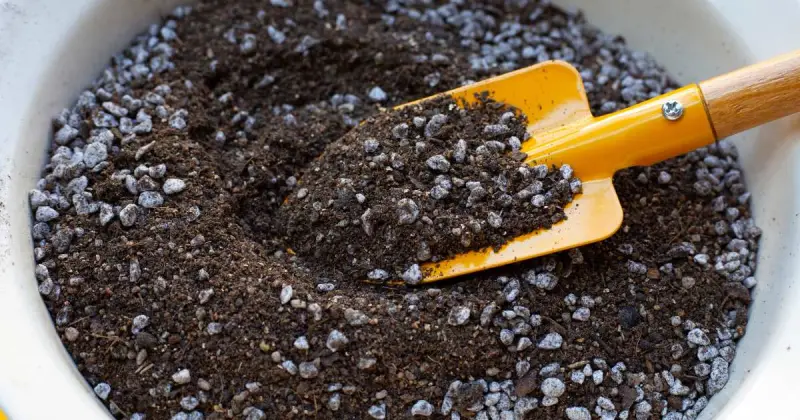
When aiming to optimize aeration in container gardening soil for tomatoes, consider using perlite, a volcanic glass material known for its lightweight properties. 5
Additionally, perlite is pH neutral and sterile, making it a safe option for incorporating into growing mediums without the risk of altering the soil’s pH levels or introducing harmful pathogens.
Microbial activity in the soil plays a crucial role in breaking down organic matter and making nutrients available to tomato plants. This process, known as mineralization, releases essential nutrients such as nitrogen, phosphorus, and potassium into forms that plants can absorb. Adding organic matter to the soil, practicing crop rotation, and minimizing the use of synthetic chemicals can all help support beneficial microbial activity in the soil. Check out the video below that details how one backyard gardener masterfully cultivates her tomatoes!
Using Compost For Soil Enrichment
To enrich the soil in your container garden for the best tomato growth, consider incorporating compost for its nutrient-rich properties. Compost is a valuable addition to your container soil for several reasons:
- Nutrient Boost: Compost enriches the container soil with essential nutrients, including nitrogen, phosphorus, and potassium, for healthy tomato growth.
- Enhanced Root Development: Using compost in your soil mixture promotes robust root development, which is essential for the overall vigor and productivity of your tomato plants. 6
- Sustainable Practice: Incorporating compost improves soil quality and reduces the dependency on synthetic fertilizers, making your gardening practices more sustainable in the long run.
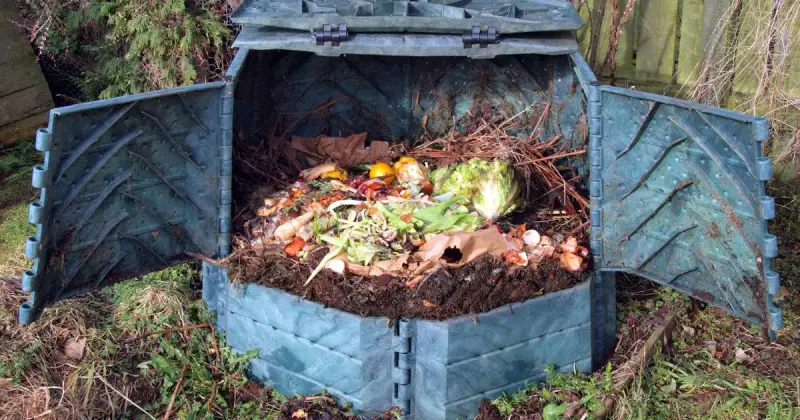
Enhancing Fertility With Organic Matter
Organic materials, such as compost, aged manture, and worm castings, are rich in essential nutrients that provide a balanced diet for your tomato plants. Adding organic matter to your container soil improves its structure, increases aeration, and enhances water retention, all of which are important for promoting healthy root development. Vermicompost, leaf mold, and peat moss are also excellent choices to boost fertility in container soil and support robust root systems.
Incorporating organic matter into your soil enriches it with nutrients and encourages microbial activity, aiding plants’ nutrient uptake. This, in turn, leads to overall improved plant health and vitality.
You’ll want to regularly amend your container soil with organic matter, which helps replenish nutrients, reduces soil compaction, and sustains long-term fertility, providing an excellent environment for growing thriving tomatoes. 7
By prioritizing organic matter in your container soil, you set the stage for successful tomato cultivation with strong root development and efficient nutrient uptake.
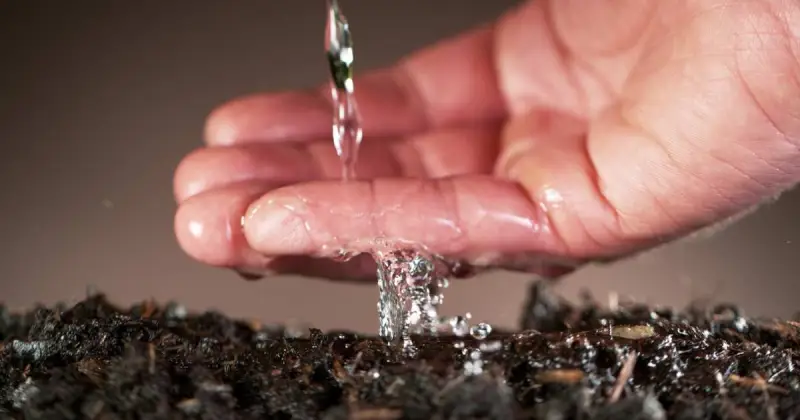
Monitoring Moisture Levels In Containers
Boost your tomato container gardening success by accurately monitoring soil moisture levels using a reliable moisture meter. Ensuring your tomato plants receive the right amount of water is essential for their growth and productivity.
Here are some key points to keep in mind when monitoring moisture levels in your containers:
- Use a moisture meter: Invest in a quality moisture meter to get precise readings of the moisture content in your soil.
- Check soil moisture: If you don’t have a moisture meter handy, insert your finger into the soil up to the second knuckle to gauge moisture levels.
- Look for signs of overwatering: Watch out for wilting leaves or mold growth on the soil surface, as these can indicate that you’re overwatering your plants. 8
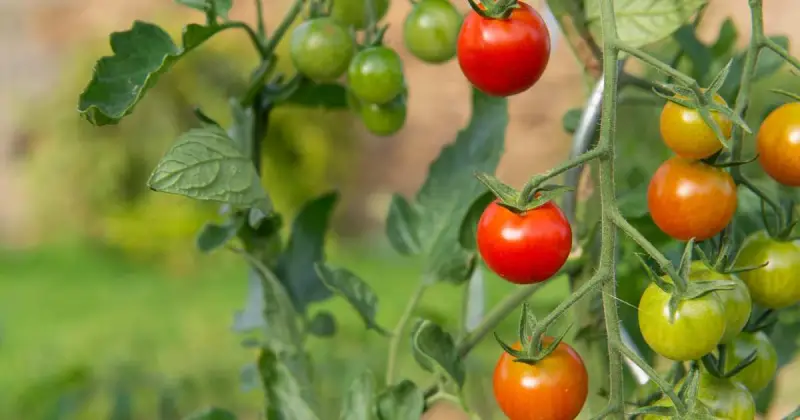
Watering Practices For Tomato Success
Watering tomatoes correctly is essential for their growth and productivity. It’s best to water deeply and infrequently, allowing the soil to dry out slightly between waterings. When watering, aim to moisten the soil to a depth of 6-8 inches to encourage deep root growth. Also, watering in the early morning helps reduce evaporation and gives the plants time to dry off before cooler evening temperatures, reducing the risk of fungal diseases.
Before watering, always check the top two inches of the soil to avoid over or under-watering. Consistent moisture levels are crucial to supporting healthy tomato growth in containers.
It’s important to water at the base of the plants to avoid wetting the foliage, which can also help prevent disease. A soaker hose, drip irrigation system, or watering can with a spout can help deliver water directly to the root zone. 9
You can also consider applying a layer of mulch around the base of the plants, which can help retain moisture in the soil and reduce the need for watering.
Proper hydration is essential for the success of your tomato plants, so pay close attention to their watering needs. By implementing a reliable watering system and diligently monitoring moisture levels, you can help your tomatoes thrive and yield a bountiful harvest.
A popular time-saving watering alternative for backyard growers is using a soaker hose or drip irrigation system. These systems deliver water directly to the base of the plants, minimizing water waste from evaporation or runoff. They also help keep the foliage dry, reducing the risk of fungal diseases.
Watering tomatoes directly at the root zone ensures that the plants receive a consistent and adequate supply of water, which is especially important during hot and dry periods.
Conclusion
Using the right soil mixture is the key to successfully growing tomatoes in containers. By ensuring adequate drainage, incorporating organic materials like compost, and monitoring moisture levels, you can create ideal growing conditions for healthy tomato plants.
Remember to maintain a balanced pH level, provide essential nutrients, and encourage robust root growth using perlite and peat moss. You can enjoy a bountiful harvest of delicious tomatoes with the right soil mix and proper care.
Do you have a unique blend of nutrients you mix for consistent tomato growth? You could use some of the suggestions in this article or opt for something completely different. We’d love to know your particular combination, so let us know in the comment section below, along with your favorite tomato variety!
SOURCES
- ResearchGate – How To Grow Tomatoes
- ResearchGate – Soil pH Influences The Development Of Tomato Root Organ (Solanum lycopersicum L.)
- Cornell University, Warren County Cooperative Extension – Growing Tomatoes
- Wikipedia – Peat
- MDPI – Comparison Of Methods To Determine Nutrient Uptake Of Tomato Grown In Free-Draining Perlite Substrate – Key Information For Optimal Fertigation Management
- Royal Horticultural Society – How To Grow Tomatoes
- University Of Massachusetts, Extension, Center For Agriculture – Tomatoes: Ten Tricks For Growing Better Tomatoes
- Washington State University – Growing Tomatoes – Tip Sheet #7
- National Library Of Medicine, National Center For Biotechnology Information – Evaluating The Effect Of Three Water Management Techniques On Tomato Crop
